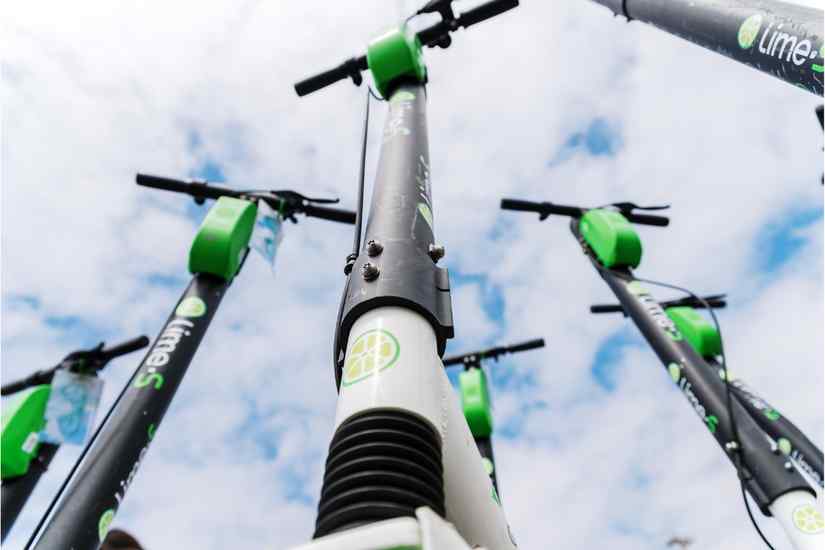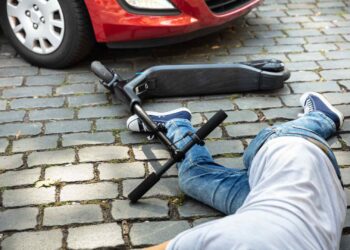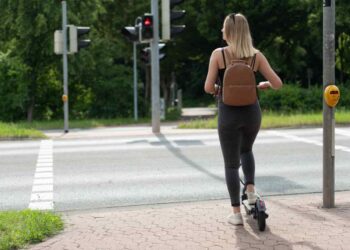According to the State Representative, legislative changes are impending in Philadelphia, which will bring about a shift in the legal status of electric scooters in Philadelphia. Though not currently recognized as legal, the impending pilot program for dockless e-bikes has been touted to offer support and insights for micro-mobility in general. Therefore, for those keeping an eye on the electric scooter scene, our recent post may be of interest.
Electric scooters
Electric scooters are the ideal solution for navigating congested urban spaces, circumventing the need to contend with traffic. The compact, sleek design of these vehicles has revolutionized the transportation sector and, despite their origins as toys for children, the contemporary, innovative designs available today have caught the attention of adults worldwide.
Indeed, the electric scooter industry is thriving and expanding rapidly in cities globally, with major companies now offering large scooter fleets for rent to the public. Nevertheless, the advantages these vehicles offer are not universally accessible; Philadelphia, for instance, is one such city where electric scooters are not available for public use.
If you happen to reside in this city and are seeking a more convenient mode of transport, it is regrettable that electric scooters may not be a viable option for you just yet. This situation is not atypical, as burgeoning sectors like electric scooters often come with their own set of issues. In this instance, the danger electric scooters pose to pedestrians has led to their banishment from certain areas and cities.
Furthermore, the legal position of these vehicles remains unclear, and authorities are grappling with how best to regulate and manage their use, particularly with the potential surge in their numbers in already heavily populated cities. Therefore, it is worth examining the reasons that impede the people of Philadelphia from adopting electric scooters.
History
Did you know that a 16-year-old law in Pennsylvania that only allows Segways to be used on public roads is the reason why electric scooters are not yet legal in Philadelphia? But there’s good news! Lime and Bird, two renowned electric scooter rental companies, are leading the charge to change this. And they already have some support, as a local State Representative plans to redefine scooters and apply the same regulations that govern bicycles.
But it’s not just the rental companies pushing for change. Local figures and authorities have also shown their support for implementing and using electric scooters in the city, recognizing the importance of having them readily available across all areas. They suggest that companies should also be involved in enhancing and maintaining the required infrastructure for these vehicles.
Although the legislative process can be lengthy, electric scooter rental companies are eager to make their mark in Philadelphia. So, while it’s hard to say exactly how long the wait will be, the good news is that electric scooters will soon be available, offering the city’s residents the advantages of this innovative mode of transportation.
Pilot Programs
Behold, the city of Philadelphia is still grappling with the perplexing and baffling issue of electric scooters, but in the meantime, they have taken some steps towards innovation by introducing alternative transportation options such as dockless bike-sharing. However, while there are regulations in the works and a proposed fall 2022 launch, the bursting question remains: what will happen with e-scooters?
The city’s Office of Transportation, along with other administrative entities, will oversee the program, which is vital for promoting and testing sustainable modes of transportation. After all, finding the right solutions to transportation issues is an essential aspect of city life.
As for the specifics of the pilot program, reports indicate that only two licenses will be issued, and each chosen business will be allowed to operate 1,200 bikes at most. The designated area for the program has yet to be determined, and the licenses will be valid for up to one year, with possible extensions, though not exceeding a year.
The costs associated with participating in the program are quite interesting as well. Companies interested in participating in the program will need to fork out an application fee of approximately $2,600, and the license itself will cost a whopping $76,000. If companies decide to use the maximum number of bikes, it will cost approximately $63 per bike. However, the bigger question is whether this program will pave the way for electric scooters or not.

Cautionary Tale
Urban mobility is a crucial subject that authorities across the globe are constantly trying to improve. In Philadelphia, new modes of transportation, such as dockless bike-sharing, are being tested as potential solutions.
However, city officials are well aware of the challenges and risks associated with such programs. Camden, for example, launched a similar initiative but failed when the responsible company pulled out just two months after launch. Philadelphia is looking for partners with a proven track record and a commitment to staying in the city for the long term, which ensures stability and sustainability for the community.
The benefits of alternative modes of transportation, such as e-scooters and e-bikes, are numerous, but they also come with their share of responsibilities. Some parts of the United States have banned e-scooters due to safety concerns, as authorities struggle to manage their increasing numbers and the risks they pose to pedestrians.
Philadelphia officials are mindful of these challenges and have learned from the experiences of other cities. They recognize that dockless bikes and e-scooters can be a hazard if left scattered on sidewalks and streets. Therefore, they are taking steps to ensure that the program is well-managed, and that all parties involved, including users, companies, and the local administration, work together to ensure success.
Innovation is necessary for improving urban mobility, but it is important to remember that every benefit comes with a certain level of responsibility. As such, cities must find a balance between encouraging innovation and ensuring safety and sustainability. The hope is that the dockless bike-sharing program in Philadelphia will be a success and will pave the way for more alternative modes of transportation in the future.
Some of the Solutions
The prospect of dockless bikes in Philadelphia might just open up the city to the possibility of e-scooters as well, but authorities are aware of the potential issues and are taking measures to prevent them. One of these is making sure that every bike has a cable or lock so that users can secure them, and spots have been designated to prevent bikes from getting in the way of pedestrians.
Rules have also been put in place to ensure that bikes are parked upright without causing any obstructions to people or traffic, and that no bike can be left unused and locked in the same place for more than two days. These rules will be enforced by the two companies chosen to operate the program, who will be responsible for relocating bikes from prohibited areas once they are notified by the city.
Given that these bikes are not high-speed but still pose a risk of damage or injury, insurance for both automotive and general liability will be mandatory. The city’s primary concern is to ensure that both users of the service and non-users are comfortable on public roads.
The pilot program is also a vital step in determining the community’s needs and wants in terms of micro-mobility, and this knowledge will be used to make any necessary adjustments. If the program is successful, it could potentially lead to the inclusion of other dockless vehicles, such as e-scooters, as legislation allowing for their operation is expected to be passed in the fall.
















